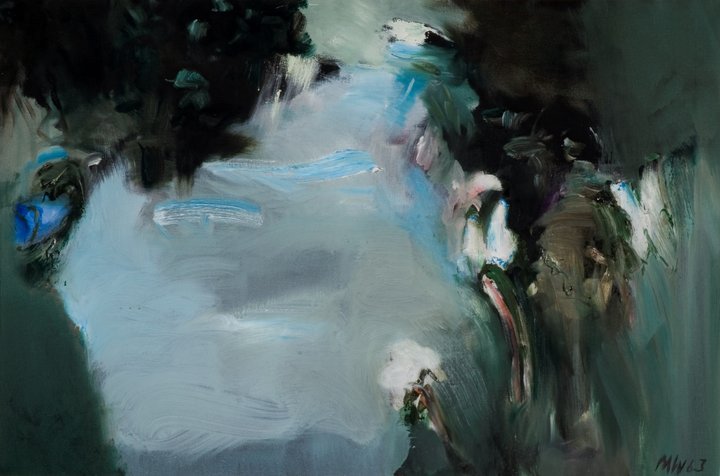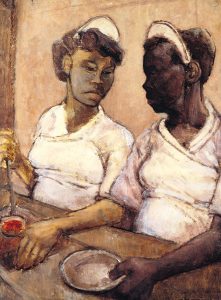Our research group explores the ways in which our understanding of post-war British painting is shaped by both the complex shift in aesthetic values since the 1950s and the many social and political shifts that marked this period, including the breakdown of colonialism, and changing attitudes to gender, sexuality and class. These issues are of first importance to securing the ongoing relevance of regional public collections and recent socio-political events, including Brexit and the Black Lives Matter protests, highlight the need to interrogate these complex, often exclusionary narratives within the history of post-war art in Britain.
Our regional galleries hold excellent collections post-war painting, which are ripe for further research. Focusing our attention on regional collections presents a deliberate challenge to the centre-periphery model that dominates the narrative of British art: where artistic production and reception is said to congregate only in certain well-established locations.
This research group aims to:
- Support new interpretations of regional collections that are sensitive to regional, local and socio-political particularity, across all of the home nations.
- Utilise our research and experience collectively to uncover concealed histories of race, gender and sexuality in a regional context- pertaining to post-war paintings, artists, collectors, and curators represented by/in our regional collections.
- Work collaboratively across the Higher Education and museums and galleries sectors, developing joint activities that allow us to share knowledge and expertise beyond our own disciplines.
The group is led by Sophie Hatchwell (Lecturer in History of Art, University of Birmingham), Hana Leaper (John Moores Painting Prize Senior Lecturer, Liverpool John Moores University) and Julie Brown (Collections Curator, New Art Gallery Walsall).






